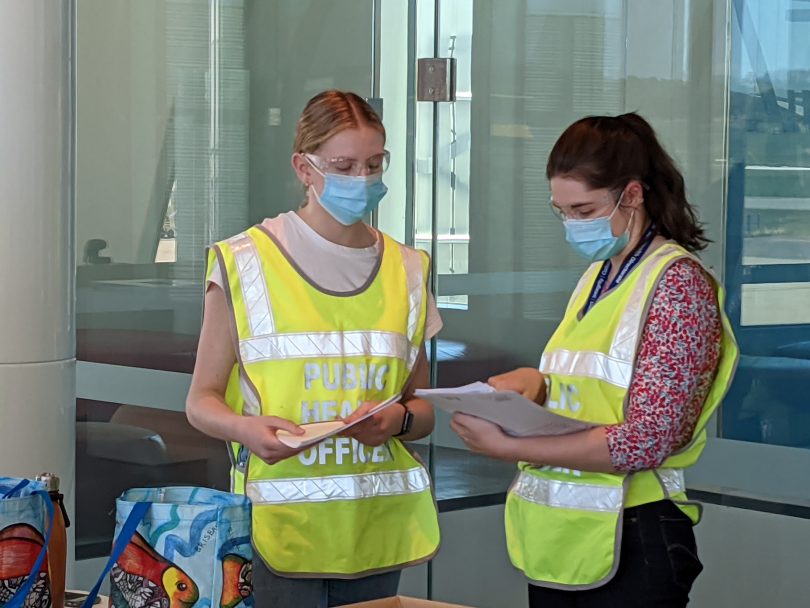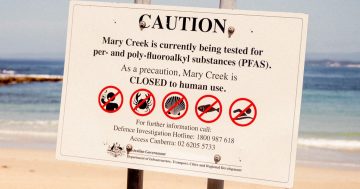
COVID-19 quarantine should not be a state responsibility, Professor Wilson argues. Photo: File.
Quarantine boundaries, such as those imposed for COVID-19, should be based on communities of interest and economic cohesion rather than state borders while the Commonwealth should accept responsibility for quarantine, work with the states to implement emergency response powers and so avoid current border wars.
Across the nation there are too many chiefs, resulting in mixed health protection messages and confusion over authority. Ill-defined responsibility leads to events like the Ruby Princess outbreak and incompetent enforcement of hotel quarantine.
The current situation is exactly what Australia’s founders were seeking to prevent when responsibility for quarantine was ceded to the Commonwealth in paragraph 51 (ix) of the Constitution 120 years ago. In 1908 the Commonwealth passed the Quarantine Act giving the Governor-General extraordinary regulation-making power to declare quarantine zones and do just about anything to manage an emergency.
Following Federation, Quarantine Stations, which had been operated by the colonial governments, became the responsibility of the national government.
The federating colonies recognised the need for unambiguous national responsibility for disease management. Emergency declarations and orders, including quarantine zones, should be based on singular, clear, authoritative Commonwealth legislation, and appropriately funded.
The Commonwealth Government used to accept responsibility for quarantine and ran stations all around Australia until the 1990s. The current so-called ‘shared responsibility’ is the outcome of the Commonwealth cutting costs, aided by states seeking to regain previously ceded power.
If only the Ruby Princess had offloaded at North Head or an equivalent Commonwealth quarantine station, as it would have done 100 years ago, rather than Circular Quay, many deaths and huge costs would have been avoided.
Similarly, Point Nepean would have been the destination for 14 days as “Commonwealth accommodation” rather than “state-managed Melbourne hotels”.
This must be a cooperative process, but there should also be no doubt where the ultimate responsibility lies. Currently, it’s a mess. When a cargo ship arrives with infected crew, confusion reigns over who is responsible – the Commonwealth or the state where it is docked?
The Commonwealth accepts responsibility for aged-care facilities, while the states run the rest of public health, hospitals, and other state-owned facilities, albeit with significant investment from the Commonwealth health department.
The resources available for quarantine management vary enormously. Monitoring and enforcement are expensive and the Northern Territory, the ACT and Tasmania just do not have what it takes to be effective. Even wealthy Victoria relied on military support to handle its second wave.
Now that interstate movements are resuming, the need for effective national contact tracing is urgent. State-based systems won’t talk to each other. Problems seen in cross border fire management will arise. Australia will return to lockdowns based on state borders. Accurate, speedy national information exchange is essential.
Lines drawn on maps in Whitehall in the 1800s should not be the basis of disease management 200 years later. Tweed Heads and Coolangatta are bound together in communities of interest. Dividing Broken Hill from Port Augusta is needlessly expensive. The Anangu of central Australia is a coherent cultural community of interest.
The legal basis of the risk management of their health should not be split by state boundaries administered thousands of kilometres away in state capitals. At least splitting Queanbeyan and Canberra was recognised as impossible, although at one stage Canberrans flying to Queensland had to declare they had not been to NSW in the preceding 14 days.
Most epidemiologists and ecologists (and I have been both in my career), would agree that state borders are especially meaningless in a quarantine/biosecurity context. This has been revalidated in unsuccessful attempts over the years to contain the spread of diseases and introduced pests and weeds.
If the Commonwealth were responsible, a more effective, less expensive and economically damaging quarantine zone could be set.
I acknowledge that in a time of crisis it is usually better to stick to what we have rather than to create new rules.
Nevertheless, Australia is paying the price for a lack of clarity about responsibilities. The consequences of continuing state-based quarantine is worrying. Even with a vaccine, hot spots are likely to recur, probably for most of 2021.
Clarity about ultimate responsibility is needed to enable effective contact tracing, address resourcing differences between states and deliver effective management at scale. Local knowledge and priorities need to be considered and not dismissed because of jurisdictional anomalies.
Australia has done well in addressing the pandemic. We could do even better if the Commonwealth Government accepted the responsibility for quarantine which the Constitution says it has. It is completely understandable why the Minister for Health and the Prime Minister don’t want to, but they should not be allowed to evade their Constitutional responsibilities.
George Wilson is an honorary Professor at the Fenner School of Environment and Society at the ANU. He has worked for nearly 50 years in a range of wildlife, environmental, agricultural and disease management occupations.
Original Article published by Professor George Wilson on The RiotACT.








